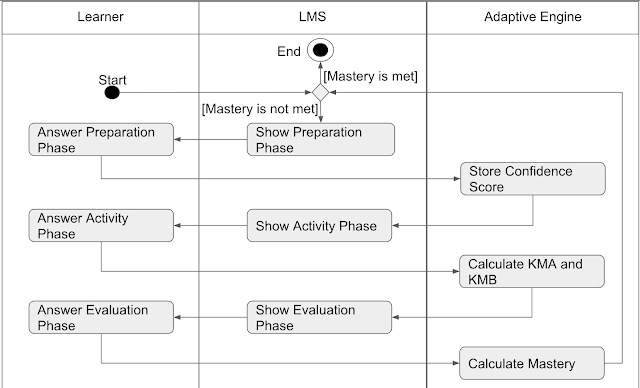OES vol 4: Knowledge tracing for adaptive learning in a metacognitive tutor
It is such a relief for this paper to be finally published! It was unfortunately caught in the COVID-19 commotion; it was submitted in October 2020 and was just published in May 2022, almost 19 months! I don't know if this is my best work yet, but I encourage those interested in applying machine learning techniques in different domains to check it out since I did my best to make the concepts friendly.
For a copy of relevant materials (e.g., presentation, paper) or any questions you may have, please feel free to reach out to me through the Contact Me gadget on this blog's sidebar.
Details
Title: Knowledge tracing for adaptive learning in a metacognitive tutor
Authors: May Kristine Jonson Carlon, Jeffrey S. Cross
Venue: Open Education Studies
Specifics: Volume 4, Issue 1, May 16, 2022, pp 206-224, De Gruyter
DOI: 10.1515/edu-2022-0013 (open access)
Abstract
Adaptive learning is provided in intelligent tutoring systems (ITS) to enable learners with varying abilities to meet their expected learning outcomes. Despite the personalized learning afforded by ITSes using adaptive learning, learners are still susceptible to shallow learning. Introducing metacognitive tutoring to teach learners how to be aware of their knowledge can enable deeper learning. However, metacognitive tutoring on top of cognitive tutoring can lead to unsustainable cognitive loads. Using metacognitive inputs for knowledge tracing was explored for managing cognitive loads. Hidden Markov models (HMM) and artificial neural networks were used to train models on a synthetic dataset created from predetermined learner personas. The models created with metacognitive inputs were compared with the models created without said inputs. The models using metacognitive inputs performed better than the standard models while still following learning intuitions. This indicates that combining knowledge tracing and metacognitive tutoring is a viable option for improving learning outcomes. This is an important finding since online learning, which demands metacognitive skills, is becoming popular for various topics, including those that are challenging even with immediate teacher assistance.

Comments
Post a Comment